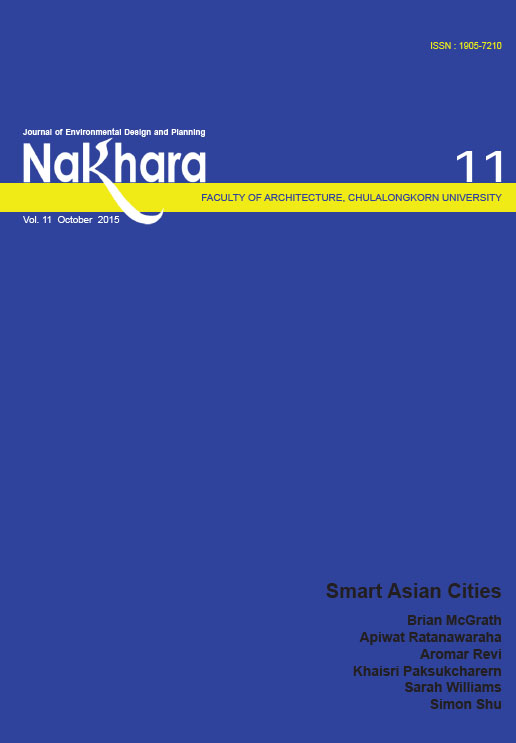Smart City: A Case of Seoul
Main Article Content
Abstract
Smart City is a city that efficiently and effectively solves its challenges in advancing the quality of life
and work of its citizens by adequately making use of the best available technologies, which are mainly infrastructure technology in the early stages of urbanization and information technology for everyday use. In addition, it is also argued that a city requires not only technology but also new regulations to become a smart city. With new technology and rules Smart City successfully achieves prosperity and sustainability. This paper briefly reviews what defines a smart city and discusses the case of Seoul.
This paper discusses two exemplary cases showing how to build a smart city by using new technology and rules to reform public transportation and by adopting OPEN (Online Procedures ENhancement for civil applications). The first example shows how Seoul diverted her mobility from a car-dependent city, which causes congestion, pollution, inefficiency and social cost, to transit-oriented city which improves sustainability, efficiency, productivity, and quality of life . These examples confirm that new technology and rules can increase the efficiency of public services and create a bi-lateral governance system.

